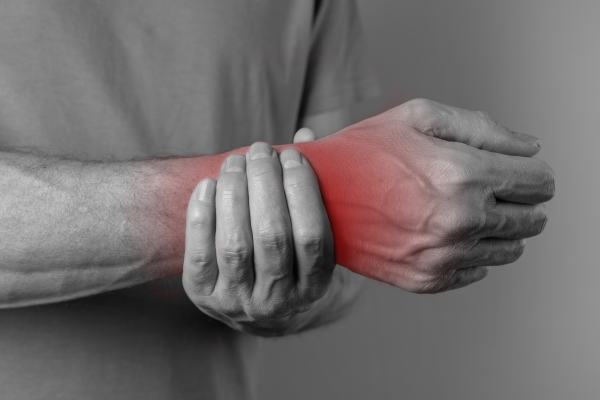
When you think of injuries sustained in a motor vehicle collision, carpel tunnel syndrome probably isn’t at the top of the list. That’s all the more reason to be aware of the common signs of traumatic carpal tunnel syndrome after an auto collision.
What is Traumatic Carpal Tunnel Syndrome?
One form of wrist trauma that can result from an auto accident is traumatic carpal tunnel syndrome or TCTS. The carpal tunnel is a narrow corridor in the wrist that holds the median nerve and tendons. Auto collision injuries in this area can make many daily tasks painful or even impossible, so it’s essential to recognize the signs of TCTS so you can seek out timely intervention both medically and legally.
Pain and Discomfort
The most common and obvious signs of traumatic carpal tunnel syndrome after an auto collision are ongoing pain and discomfort in the impacted hand and wrist. The pain can vary in intensity and can present as sharp, shooting, or aching. Note the exact location of your pain because TCTS mostly affects the thumb, index, middle, and ring fingers. Pain or discomfort that radiates into the forearm may mean there is nerve compression in the carpal tunnel.
Numbness and Tingling
Numbness and tingling in the fingers can result from trauma to the carpal tunnel that compresses the median nerve. This “pins and needles” sensation can be intermittent or persistent. It can worsen when doing common activities that require fine motor skills, like holding a pen, a steering wheel, or using a computer mouse.
Weakness in the Hand
Weakness in the hand is another typical sign of TCTS after a collision. The compromised median nerve can impact the muscles that control fine motor skills and grip strength. You may notice that you’re suddenly dropping things, and this weakness can worsen if not treated.
Swelling and Inflammation
Trauma resulting from a collision can lead to swelling and inflammation in the wrist and hand. The swelling can cause increased pressure within the carpal tunnel and further compress the median nerve.
Worsening Symptoms Aggravated by Repetitive Movements
Everyday activities that require using your hand and wrist can worsen TCTS symptoms. Things like typing, playing an instrument, and using tools. If doing these activities worsens symptoms, note it for your doctor and any potential legal action.
What to Do if You Suspect Traumatic Carpal Tunnel Syndrome After an Auto Collision in Florida
The actions you do or do not take after being involved in a collision can impact your health, medical care, and any personal injury claims you may make. Take these steps if you suspect you’ve suffered TCTS after a collision.
Immediately Seek Medical Attention
If you suspect TCTS after a collision, speak to your doctor about your symptoms as soon as possible. A doctor may order specific wrist tests, X-rays, or other imaging procedures to help diagnose the problem and recommend the best treatment options.
Document Symptoms
Keep a list of the symptoms you’re experiencing, including how often, how severe, and what, if any, movements or activities make symptoms worse and are being impacted. These kinds of records are important if you intend to make a personal injury claim in the future.
Contact a Florida Car Accident Lawyer
Seeking the advice of a lawyer if you have suffered TCTS after a collision is critical. Though Florida is a no-fault state, you may be entitled to bring a personal injury claim against the responsible parties.
Our legal team has over 40 years of experience seeking justice for our clients who have been the victims of car accidents. We’ve seen the results of untreated injuries, which can be devastating, and that is why you should never ignore pain or other symptoms after an accident.
Our attorneys have sought and won millions of dollars for our injured clients. Don’t allow your health and legal rights to go unaddressed after a collision.
Call 850-601-1111 to schedule a complimentary consultation with no obligations. This consultation will help you explore your legal options. Let us help you fight for fair compensation.


